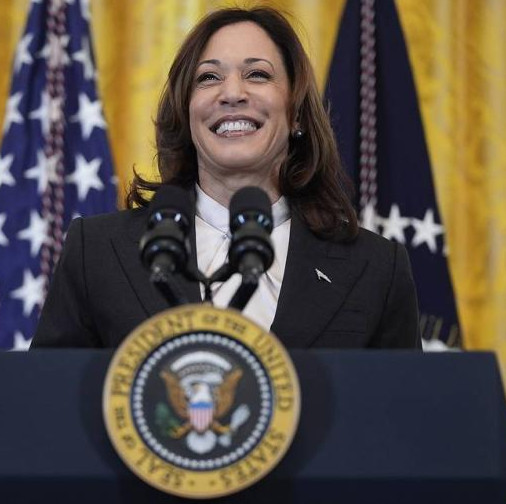
Recently, high-ranking officials from the US and NATO have become frequent visitors to the Asia-Pacific region (APR). In late January, NATO Secretary General Jens Stoltenberg visited the Republic of Korea and Japan, while US Secretary of Defense Lloyd Austin visited the ROK and the Philippines. In Seoul, the NATO chief had talks with President Yoon Suk-yeol and Minister of Foreign Affairs and Trade Park Jin. During those meetings, Stoltenberg invited the latter to the alliance’s upcoming foreign ministers’ session in April this year, and the President of South Korea ˗ to attend the NATO summit in Vilnius three months later.
South Korea’s intention to actively develop cooperation with NATO became obvious when President Yoon Suk-yeol visited its summit in Madrid, and his country’s representative office opened in Brussels. In addition, the two sides signed a special agreement on partnership and cooperation development in cyberspace, military industry, new technologies, and other areas. Stoltenberg's current trip to Seoul was a return visit, marking regular highest-level bilateral contacts.
In turn, while in Seoul, the NATO Secretary General immediately started emphasizing the unity binding the alliance and South Korea, despite its location. As Stoltenberg noted, "North Korea's ties to the Ukraine war demonstrate how interconnected NATO and South Korea are." Moscow and Pyongyang reject their cooperation in the strongest terms, and the United States has not yet demonstrated any proof of its words, with Stoltenberg using this as a pretext to push Seoul to further rapprochement with the alliance.
South Korea has swiftly turned into a very important weapons supplier to NATO. Seoul does not want to explicitly send weapons, ammunition and equipment to Kiev, loathing a direct confrontation with Moscow, but actually does it implicitly: NATO countries, where South Korean equipment and ammunition come, get a chance to help Ukraine more actively. Korean tanks, self-propelled guns, shells, etc. might head for Kiev in transit, since the ROK cannot actually control this.
During his talks with Stoltenberg, the republic’s Foreign Minister Park Jin said the following: "Given today’s unprecedented global challenges, we believe that solidarity among countries that share values of freedom, democracy, and rule of law is more important than ever." He also briefly outlined the key provisions of Seoul-adopted official Indo-Pacific Strategy, which backs US efforts to establish a quasi-alliance of friendly forces to deter China and other countries Washington has strained relations with.
After Seoul, Stoltenberg went to Japan to hold a meeting with Prime Minister Fumio Kishida on January 31. And when visiting the Iruma military base of Japan’s Self-Defense Forces, the NATO chief stated the importance of strong partnership between the North Atlantic Alliance and Japan that both believe in freedom and democracy. Stoltenberg also thanked Tokyo for its support of Ukraine and expressed hope for new arms supplies to Kiev.
North Korea’s response to Stoltenberg's visits to Seoul and Tokyo followed right away – they were dubbed "a prelude to confrontation and war in the Asia-Pacific region." In particular, the Korean Central Telegraph Agency (KCNA) broadcast a statement by Kim Tong Myong with the country’s Society for International Politics Study, in which he lambasted Stoltenberg's visits. "It will be nothing good if NATO, a synonym for war and confrontation, puts its military boots on the region. the trip of the NATO secretary general to South Korea and Japan is a prelude to confrontation and war as it brings the dark clouds of a 'new Cold War' to the Asia-Pacific region," the political analyst said.
Interestingly, the day Stoltenberg was leaving the ROK, Pentagon chief Lloyd Austin arrived in Seoul to meet with members of the South Korean government, and agreed on new specific plans to strengthen their military alliance with the US. Unlike NATO Secretary General who sought to ensure common ground for further cooperation, the American guest discussed a lot more specific things, including joint action plans to contain the DPRK and China. In this regard, Lloyd Austin and his South Korean counterpart Lee Jong-sup agreed to expand the scope of joint drills this year, and hold trilateral talks engaging Japan to discuss moves aimed at stepping up security cooperation. Moreover, the Pentagon head pledged additional security guarantees to Seoul against Pyongyang, including a possible use of nuclear weapons. After South Korea, Lloyd Austin went to the Philippines.
It is no secret that the United States and its APR allies intend to create sort of "Asian-style NATO" to counter both Russia and China's growing power in the region. For this very reason Stoltenberg came to Seoul and Tokyo, and Austin visited South Korea. Washington has already put together a new AUKUS block in September 2021, comprising itself, the United Kingdom and Australia, and is also making efforts to activate the Quadrilateral Security Dialogue aka QUAD involving the United States, Australia, India, and Japan.
Japan, being one of Washington's major Asian allies, has boosted security and defense cooperation with other US partners. Last December, Tokyo and London signed an agreement on joint access of warships to each other's ports, similar to the one the Japanese signed with Australia in January 2022. In the future, the Land of the Rising Sun may also work out an agreement of the kind with another Asia-Pacific state – the Philippines. Let's not forget Japan’s expanding cooperation with NATO in these latter days. Last year, Kishida became the first Japanese PM to take part in the alliance’s summit. After that, his department decided to establish an independent mission to NATO, with its status upgraded by separating it from the Brussels-based embassy.
Experts suppose that AUKUS will replace the somewhat loose QUAD as the organization kernel of a new major block – the "Asian NATO". And Japan is the first choice for AUKUS expansion. The next one may well be South Korea with its recent change of power that replaced moderate pragmatists by Washington's clear-cut supporters, who consider Beijing a serious menace and threaten Pyongyang with a preemptive strike.









